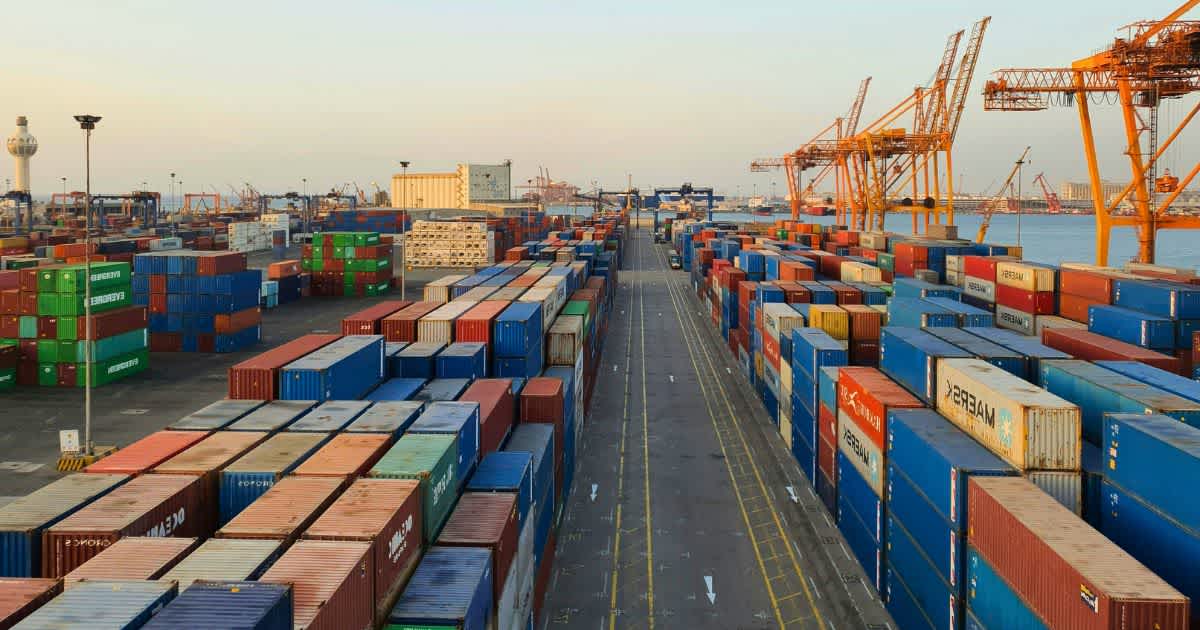Table of Contents
- What does the Supply Chain Act regulate?
- Who is affected by the Supply Chain Due Diligence Act?
- What is the aim of the Supply Chain Act?
- What due diligence requirements must be met?
- What concrete measures need to be implemented?
- Who checks compliance with the Supply Chain Act?
- Will there be any impact on delivery times or costs?
- Still have questions about the Supply Chain Act? Ask Line Up!
Effect of Supply Chain Act on production
Reading Time: 5 min.

In January 2023, the Supply Chain Act comes into force: we reveal what it means for your production.
In January 2023, the Supply Chain Act will come into force, which is intended to improve the protection of human rights in global supply chains. We summarize the most important info’s and reveal what it means for your production.
Global value chains account for around 80 % of worldwide trade. No other industrialized nation is as intensively involved in international supply chains as Germany. However, long, and unmanageable supply chains can lead to neglect of working conditions and human rights.
What does the Supply Chain Act regulate?
The new Supply Chain Act aims to strengthen the protection of human rights in global supply chains. To this end, the legislation, also known as the Supply Chain Due Diligence Act, sets out clear due diligence obligations for companies that must be implemented. Having already been passed by the Bundestag in June 2021 and approved by the Bundesrat shortly afterwards, it will come into force on January 1, 2023.
Who is affected by the Supply Chain Due Diligence Act?
The Supply Chain Due Diligence Act affects all companies that have their head office, principal place of business, administrative headquarters, registered office, or branch office in Germany. The Supply Chain Due Diligence Act will gradually affect the following company sizes:
As of January 2023
Companies with more than 3,000 employees
As of 2024
Companies with more than 1,000 employees
What is the aim of the Supply Chain Act?
The Supply Chain Act aims to ensure that fundamental human rights standards are seen in the global supply chains of German companies - such as the ban on child and forced labor.
Equally relevant are disregard for occupational health and safety as well as aspects of environmental protection - for example, when harmful environmental impacts (such as poisoned water) jeopardize the protection of human health. Accordingly, the law is intended to pave the way for green or sustainable logistics.
What due diligence requirements must be met?
The Supply Chain Act describes in detail which prevention and remediation measures are necessary for compliance. To this end, it obliges companies to have defined complaints procedures and regular reporting. The foundation is the establishment of a risk management system to identify, reduce or completely avoid possible impairments to human rights.
It is important to note that the companies concerned bear responsibility for the entire global supply chain, which includes all domestic and foreign steps from the raw material to the finished product. In addition, the due diligence obligations at the direct supplier only apply on an ad hoc basis. In addition, your own company must also become aware of a possible violation in the supply chains.
What concrete measures need to be implemented?
Affected companies must implement the following measures for themselves as well as for their direct and indirect suppliers:
Adopt a policy statement on respect for human rights
Conduct risk analyses to identify adverse impacts on human rights
Establish a grievance mechanism
Publish transparent and public reports
Take immediate remedial action in case of a domestic violation
In case of a supplier violation, set up a plan for prevention
Anchor proper prevention measures (e.g., through joint industry initiatives)
Who checks compliance with the Supply Chain Act?
The Federal Office of Economics and Export Control (BAFA) verifies compliance with the Supply Chain Act. To this end, the established authority checks the company reports to be given annually, investigates complaints sent and imposes sanctions in case of emergency.
The fines can be up to 8 million euros or up to 2% of global annual sales. However, the turnover-based fine framework only applies to companies with annual sales of more than €400 million. In addition, it is possible to exclude companies above a certain acceptable level additionally and for up to three years from being awarded public contracts.
Will there be any impact on delivery times or costs?
Since the Supply Chain Act addresses human rights compliance and aspects of occupational health and safety and environmental protection, but does not directly address immediate production or logistics, there is unlikely to be a direct impact on delivery times.
As far as costs are concerned, it is difficult to make a prediction. Of course, it is unavoidable that compliance with due diligence obligations will result in additional costs for companies.
Still have questions about the Supply Chain Act? Ask Line Up!
However, it comes about, the Supply Chain Act puts German companies under an obligation to keep an overview of their global supply chain and strengthen human rights.
This is a challenge, but also a complex one in some circumstances. That is why it is even more important to have a partner who can provide you with advice and support. Ask us, the Line Up Team - we can support you when it comes to international sourcing and compliance with the upcoming Supply Chain Act.
Newsletter Registration
Sign up now for our free Line Up newsletter and stay up to date.





